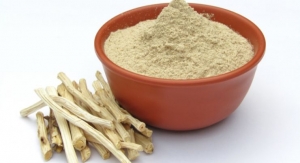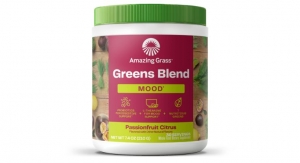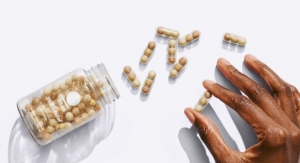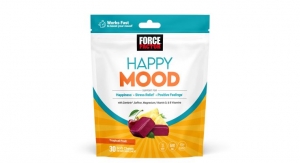Rebecca Wright03.01.09
Let's face it, times are tough these days. More than one million jobs in the U.S. have been lost during the past year, the economy is in the worst shape it's ever been, and access to quality healthcare still seems to elude a majority of consumers. And yet many analysts predict the worst is yet to come. So how are consumers coping with these events?
According to market research firm SPINS, Schaumburg, IL, Americans' progressively more stressful lives have prompted an increase in remedies to treat sleep disorders and anxiety, with the segment expanding by more than 35% between 2006 and 2007. Its "Evolving Natural Lifestyle: SPINS Natural Products Marketplace Review" and "2009 Market Trends" reports both indicate that the recent surge of interest in consumer health and wellness will presumably affect buying decisions as well. For instance, SPINS points out, products with relaxation claims may expand as consumers look for natural antidotes to their hectic lifestyles.
Regarding sleep aids specifically, Packaged Facts, New York, NY, says that as more Americans become aware that sleep is as important as food or exercise, marketers will find greater opportunities for both traditional and alternative sleep aid products. For OTC sleep aids alone, Packaged Facts expects the total market to near the $759 million mark by 2013. Its latest report on sleep aid products takes an in-depth look at sales of OTC sleep aids and offers a snapshot of the more niche natural sleep aid supplements market as a bellwether for the future of the total marketplace.
The market's massive mood swings bode well for established pharmaceutical categories that cater to the various mental disorders, but dietary supplements and functional foods with "mood lifting" capabilities are also likely to make significant gains here. Andrea Tone, author of the book The Age of Anxiety, says historically tranquilizers have sold best during stressful times-December and January have long been their blockbuster months. While it may be a little premature to assess the impact of the events of the last six months, most experts predict further expansion of the dietary supplement and "mood food" categories in the near future.
Greg Stephens, vice president of strategic consulting, The Natural Marketing Institute (NMI), Harleysville, PA, has noticed a significant uptick in dietary supplement use as it relates to mood health.
According to NMI's "2008 Health and Wellness Trends Survey," the number of consumers that reported taking "supplements for mood/depression" increased significantly from the 2007 survey. In fact, Mr. Stephens says almost 7% of GP-PGS (general population-primary grocery shoppers) reported using dietary supplements for mood/depression; in 2007 the percentage was only 4%. "Slicing it by age, it seems usage was significantly higher within two age brackets, the 30- to 39-year-olds (nearly 8%) and the 50- to 64-year-olds (7%)-again, significantly higher than 18 to 29, 40 to 49 and 65+ age groups," he said. "Income was another area that stood out in that 10% of those making less than $30k per year reported taking mood supplements, nearly twice as many as in each of the other (higher) income brackets."
In terms of dietary supplement sales, Nutrition Business Journal shows the mood health market doing well, posting $280 million in sales in 2007, a growth of 6% compared to the previous year.
Eileen Sheets, managing director, Bioforce USA, Ghent, NY, highlighted the Nov/Dec 2008 issue of Psychology Today to underline her current thoughts on the mood health market. "[A recent] article discussed how the economy has affected clinicians and quotes an anonymous therapist: 'My practice has slowed down since April [2008]. I wonder if co-payments are going toward gas money instead. I've had clients say the co-pays are expensive and they need to cut back the frequency of their sessions.'
"To us, this represents an extraordinary opportunity for supplemental care and management of mood irregularities," she said, adding, "Now, we do not advocate people to thwart clinical care in cases of severe depressive episodes, which may likely need pharmaceutical therapy, but for those who are mildly stressed out or having occasional fits of the blues, supplementing with a good multivitamin along with botanicals and other nutraceuticals proven to have a positive effect on mood management may be worthwhile when their funds or healthcare situation disallows regular clinical therapy."
Mitch Skop, director of new product development, Pharmachem Laboratories, Inc., Kearny, NJ, agreed. "While natural products aren't meant to help people cope with clinical issues like severe depression or anxiety, and therefore aren't substitutes for psychiatry and associated meds, there are several good alternatives to prescription medications," he said. "Some natural products are very safe, non-habituating and nicely studied."
Mr. Skop went on to reference a 2008 study appearing in Psychotherapy and Psychosomatics, where researchers showed that the rate of antidepressant treatment in the U.S. has significantly increased in the past decade. Specifically, he said, the rate of antidepressant drug treatment increased more than four times between the early 1990s and early 2000s.
"This study is significant in that it details which demographic groups are believed to be over-treated (middle-aged adults, women and non-Hispanic whites) and those who are under-treated (younger adults, men and certain racial/ethnic minorities)," Mr. Skop explained. "It shows how and who are affected by prescription drugs like antidepressants and therefore uncovers the tremendous opportunities for naturally derived alternatives."
To deal with mood health issues effectively, Vladimir Badmaev, MD, PhD, vice president, Medical & Scientific Affairs, Sabinsa Corporation, Piscataway, NJ, suggests consumers gain a better understanding of the complexity of the specific health problem, rather than cover up superficial manifestations of the problem. "Almost instinctively and without second thought we take care of chronic sleeplessness with sleeping pills, take pain killers, take natural or synthetic antidepressants, and take energy boosters and stimulants when we feel chronically tired and drained out of physical and mental powers," he said. "Although recognition of 'stress' as a condition did not occur until the 1930s, when it was described by Dr. Hans Selye, it is not a new phenomenon."
"Stress has pervaded our lives since the beginning of human history and throughout the evolutionary process," Dr. Badmaev continued. "In essence, stress reaction is a response to danger, and one's ability to deal with it enables him or her to survive the next stressful challenge of life. In the early days, inability to deal with stress usually resulted in death or elimination from meaningful participation in the tribal life of our ancestors. A little and a lot has changed in the course of thousands of years. Instead of terror of predatory animals, the glut of information today, due to our ever technologically advancing society, challenges our psyche equally if not more."
In the spring of 2008, Next Pharmaceuticals, Salinas, CA, hired a market research company to find out how consumers were handling their stress and what issues were causing the most stress. Five hundred people were surveyed from 10 metropolitan cities across the U.S. "As you can well imagine," said Deanne Dolnick, director of sales, "financial woes caused the most stress. If we took this survey today, I'm sure that financial issues and job security would top the list far above any other issues."
The other issues that were causing the most stress included not enough time in the day, health concerns and family issues. Ms. Dolnick said a majority of respondents handled their stress by watching TV. "Out of the 14 choices respondents were given for ways in which to deal with their stress, taking a dietary supplement came in at number 12," she said. "I believe this is because the public isn't aware that there are excellent supplements to help them deal with their stress."
From a product standpoint, Don Stanek, director of sales, Linnea, Locarno, Switzerland, said there are several to consider for stress and depression, including 5-HTP, a serotonin enhancer that functions much like the SSRIs (selective serotonin re-uptake inhibitors) on the market today. "I also believe in vinpocetine and Ginkgo biloba for memory, because when your memory is optimally functioning, the better and more focused you feel," he said.
As consumers respond to the current recession by shopping smarter, companies in the dietary supplement and functional food industries are poised to absorb those looking for more natural, less invasive ways to lighten their moods.
Mood health is an umbrella term for more specific mental issues such as stress/anxiety and depression. While some consumers suffer from one or both of these conditions at one time or another, many go untreated, according to the World Health Organization (WHO), Geneva, Switzerland. And despite being very lucrative pharmaceutical categories-pulling in more than $10 billion a year, according to IMS Health-these mental disorders continue to cost society hundreds of billions of dollars in direct medical costs and lost earnings.
With regard to the latter, The National Institute of Mental Health (NIMH) at the National Institutes of Health (NIH) claims major mental disorders cost the U.S. nearly $200 billion in lost earnings each year. This comes from a study published in the May 7, 2008 edition of the American Journal of Psychiatry. "Direct costs associated with mental disorders like medicine, clinic visits and hospitalization are relatively easy to quantify, but they reveal only a small portion of the economic burden these illnesses place on society. Indirect costs like lost earnings likely account for enormous expenses, but they are very difficult to define and estimate," NIMH stated.
Anxiety disorders represent the most common mental illness in the U.S., affecting 40 million adults in the U.S. age 18 and older (18% of U.S. population). Anxiety disorders cost the U.S. more than $42 billion a year, representing almost one-third of the country's $148 billion total mental health bill, according to a 1999 study, "The Economic Burden of Anxiety Disorders," commissioned by the Anxiety Disorders Association of America (ADAA). Clearly this an economic burden this country, and perhaps the world, can no longer afford.
As for depression, WHO estimates that 5-10% of the population suffers from the disease at any given time. It is also the leading cause of disability worldwide. Depression was the 4th leading contributor to the global burden of disease in 2000, but WHO researchers say it will move up two notches to become the 2nd most common health problem in the world by 2020.
While serious mental health issues such as depression and anxiety have long been the territory of pharmaceuticals, people suffering from milder forms of these disorders can benefit from dietary supplements or functional foods that offer the nutrients needed to bring mood back into balance. In this context, products emphasizing "less stress" and "mood support" are most likely to be successful.
Mental well-being is dependent on the availability of many essential dietary nutrients, including vitamins, essential fatty acids and amino acids. It is reported that 31-68% of people with depression have a nutritional deficiency. Although severe mood state disturbances can be medicated with pharmaceuticals, there is increasing evidence that diet and specific foods or dietary supplements may help with mild and sub-clinical mood fluctuations.
Vitamins and minerals. Since the 1920s, researchers have conducted several studies on individual vitamins (e.g., B vitamins and vitamins C, D and E), minerals (e.g., calcium, chromium, iron, magnesium, zinc and selenium) and vitamin-like compounds (e.g., choline). Recent investigations with multi-ingredient formulas are especially promising. However, without a reasonable conceptual framework for understanding mechanisms by which micronutrients might influence mood, the published literature is too readily dismissed.
There is evidence to suggest, for example, that folate (i.e., the natural form found in green leafy vegetables), folic acid (i.e., the synthetic form in fortified foods and supplements), vitamin B12 and iron have some effect on modulating mood disorders. Low folate and vitamin B12 levels have been found in patients with depression and recurrent mood disorders; low folate levels have also been linked to poor responses to antidepressants. Folic acid deficiency may also correlate with depression, and it has particular effects on mood, as well as cognitive and social functioning.
Most recently, it has been reported that low levels of dietary folic acid are associated with elevated depressive symptoms in middle-aged men. A clinical study in postpartum mothers showed that iron supplementation (FeSO4 plus folate and vitamin C) led to a 25% reduction in their depression and stress. Folate supplementation either by itself or in conjunction with other B vitamins has been shown to be effective in preventing cognitive decline and dementia during aging, as well as potentiating the effects of antidepressants.
Thiamine (i.e., vitamin B1) also stands out as an important nutrient for mood health. Recent studies have shown improvement in mood in subjects taking a multivitamin with thiamine and a decline when thiamine was decreased; this relationship was not found for eight other vitamins.
Choline is an essential nutrient found in many foods such as fruit (e.g., pears, lemon), vegetables (e.g., zucchini), meat, eggs, cereals and dairy products. Very little choline is made by the brain, so diet is the main source; it also readily crosses the blood-brain barrier. Several human trials have shown decreased mood symptoms, including mania in patients with bipolar disorder via choline intervention.
Fatty acids. Dietary deficiency of omega 3 fatty acids in humans has been associated with increased risk of several mental disorders, including: attention-deficit hyperactivity disorder (ADHD), dyslexia, dementia, depression, bipolar disorder and schizophrenia. Although the omega 3 fatty acid DHA is a prominent component of neuronal membranes, the human body is inefficient in synthesizing it. As a result, we are reliant on dietary DHA. Fish, especially oily fish from cold ocean waters, represent a rich source of omega 3 fatty acids and especially preformed EPA and DHA, the most neurologically active forms of omega 3 fatty acids in humans.
Some intriguing patterns have emerged from the worldwide study of fish consumption and rates of depression. Countries with low per capita fish consumption such as West Germany, the U.S. and Canada appear to have higher prevalence of depression than high-fish-consuming countries such as Japan. Lack of omega 3s in the diet is a concerning issue; however, it is also important to look at the omega 6/omega 3 ratio.
A few recent studies suggest that excess consumption of omega 6 fatty acids, in the form of arachidonic acid (AA), may be more of a culprit in depression than low omega 3 status. Although it is recommended to obtain more omega 6s than omega 3s, an optimal ratio would be 4:1 or 2:1 (omega 6 to omega 3). In reality, the average American diet is grossly off balance, in the range of 20:1 to 40:1.
The outlook for increasing omega 3 consumption, however, is promising. In this vein, Baldur Hjaltason, sales director, EPAX, Lysaker, Norway, says it's revealing to look at consumer awareness. "In the U.S., we have seen that between 2006 and 2007 there was a 5% increase in awareness of the importance of omega 3 fatty acids in brain health, from 17% to 22%," he said. "This is very positive since a dietary survey of nine countries clearly demonstrated higher prevalence of mental depression in populations not eating fish, linking increasing onset of depression to changes in our diet."
The connection between omega 3s and depression has become a lot stronger, particularly during the last several years. NIH researcher CDR Joseph Hibbeln, MD, has led this charge. "Deficiencies are not likely to manifest as classical signs such as scaly skin, but as suboptimal neural activity and function, including major depression, impaired affect, cognition, behavior, impulsivity and aggression," he said, adding, "These data indicate that advice for mothers to limit seafood intake during pregnancy is detrimental."
More recently, omega 3s have been shown to ease psychological distress and depressive symptoms often suffered by menopausal and perimenopausal women. This comes from a study published in the February issue of the American Journal of Clinical Nutrition, which is the first to show that omega 3 supplements are effective for treating common menopause-related mental health problems.
Researchers recruited 120 women, ages 40 to 55, and divided them into two groups. Women in the first group took three gel capsules containing a total of 1 gram of EPA every day for 8 weeks. Those in the second group took a placebo. Test results before and after the 8-week period showed that omega 3s significantly improved the condition of women suffering symptoms of psychological distress and mild depression. However, no positive effect was observed among a small group of women with more severe depressive symptoms.
Despite consumers' delivery preferences, Mr. Hjaltason has found that in order to reverse depression, higher doses of concentrated omega 3 fatty acids are needed. Therefore, he believes adding them into functional foods and beverages is not very practical or beneficial. "Those that have symptoms of depression usually need a higher dose of these fatty acids as preventive treatment," he said. "Therefore condition-specific, concentrated formulas are needed since this requires a larger dose that only supplements can deliver."
Because today's consumers are spending more on preventive measures with regard to stress, anxiety and depression, Lori Covert, vice president, Marketing & Communications, Ocean Nutrition Canada, Dartmouth, Nova Scotia, Canada, says omega 3s continue to reap the benefits of healthy sales. "SPINS data indicate that the omega 3 dietary supplement market is growing at a double-digit rate. In fact, during the 52 weeks ending September 6, 2008 sales of omega 3 supplements in the U.S. Natural Channel grew nearly 28%, compared with the previous 52 weeks, while the U.S. FDM (Food, Drug, Mass) channel grew almost 32%."
Amino acids and proteins. Amino acid deficiencies, also identified in depression, jeopardize synthesis of the brain's chemical messengers called neurotransmitters. SAMe, a modified amino acid ubiquitous throughout the body, is an essential amino acid found in high-protein foods like meat and fish. SAMe is vital for normal brain functioning, most important in depression and other mental disorders. A high intake of proteins also seems to increase alertness. Increased dietary serine and lysine may be linked to the pathogenesis of major depressive disorder.
Tryptophan is an essential amino acid in the body and its catabolism is accelerated by a chain of enzymatic reactions and increased cortisol production, which is produced as a result of stress. Several studies have shown that acute tryptophan depletion produces depressive symptoms and results in worsening of mood. The serotonin hypothesis of depression entails that depression-prone subjects have a vulnerable serotonergic system. Decreased serotonin levels are implicated in the etiology of numerous mental disease states, including depression, anxiety, social phobia, schizophrenia, obsessive-compulsive and panic disorders. Anxiety and aggression are predominant behavioral expressions during repeated exposure to stress, which ultimately deplete tryptophan and lower serotonin. A wealth of clinical evidence points to this specific association of acute tryptophan depletion, inducing lowered mood and impairment of learning and memory.
Herbs and botanicals. It has been estimated that 43% of mood disorder sufferers use some form of complementary therapy, including herbal medicines. St John's Wort (Hypericum perforatum) is an herb used to treat mild or moderate depression through its ability to prevent serotonin re-uptake.
Foods with serotonin antagonistic properties (e.g., gingerols) can also produce anxiolytic effects. In addition, there are foods that have high serotonin content-plantain, banana, pineapple, kiwifruit, plums, tomatoes, walnuts and a few other nut varieties. Several herbal extracts are currently used as anxiolytic agents, such as blue skullcap (Scutellaria lateriflora), gotu kola (Centella asiatica), guarana (Paullinia cupana), kava (Piper methysticum), keenmind (Bacopa monniera), lemon grass (Cymbopogon citratus), passion flower (Passiflora incarnata) and valerian (Valeriana officinalis).
With the exception of kava, none of these has been shown beyond reasonable doubt to be efficacious. Unfortunately, kava is still banned in many countries due to its hepatotoxic properties and unconvincing safety data. Herbal extracts of Ginkgo biloba leaves and Panax ginseng roots have also been used as part of traditional Chinese treatments for several millennia, particularly in the areas of brain and mental wellness.
Carbohydrates. Consumption of a low fat/high carbohydrate breakfast has been shown to improve mood, but eating a larger breakfast can lead to a poorer mood later in the morning. Out of two types of carbohydrates, soluble (e.g., wheat) and fermentable (e.g., cooked and cooled rice), digestion of fermentable carbohydrates leads to the production of volatile fatty acids and lactic acid in the caecum, which can lead to an increase in anxiety and aggression.
Mood-enhancing foods are those that contain ingredients said to uplift mood, boost mental health or improve cognitive function. Although the dietary supplement category in mental wellness is still in its development stages and lacks a standard definition, it is an area attracting significant interest from consumers around the world. The consumer awareness and acceptance of mood foods is widely varying in different regions around the world. However, in countries with a developed and distinct functional foods and dietary supplement market-such as the U.S.-foods making mood, emotional and cognitive health claims are emerging as an increasingly important category.
Specialty Ingredients. High serum cholesterol could affect mood and behavior, and in turn increase an individual's vulnerability to suicide, and violent and accidental death. Thus, a cholesterol-lowering supplement may have a significant impact on mental wellness, including mood.
SAMe is approved as a prescription medication in Spain, Italy, Russia and Germany, and is currently taken by more than one million Europeans for the treatment of depression. Recently, a food specialties company developed a new protein hydrolysate it claims has proven beneficial effects on mood, concentration and alertness.
In other developments, two stress-beating ingredients have been launched to tap into the burgeoning "mood food" market. The first, a lemon balm extract, is alleged to reduce anxiety-associated symptoms by 72%. The other is represented as a combination of soy lecithin-derived phosphatidylserine and phosphatidic acid, and is claimed to reduce stress hormones cortisol and ACTH (adrenocorticotropic hormone).
Valerie Delahaye, deputy general manager, Institut Rosell-Lallemand, Montreal, Canada, highlighted the potential role of probiotics in stress management. "Growing scientific evidence shows that digestive microflora play a role in the gut-brain cross-talk, known as the gut-brain axis. As a consequence, it appears that probiotics have a role to play in the management of stress and anxiety," she said. "A pilot study has already shown that a probiotic formula called ProbioStick reduces gastrointestinal symptoms linked to stress. More recently, this probiotic has been shown to reduce signs of anxiety in rats, displaying an 'anxiolytic-like' effect. Such an effect has never been described with probiotics and may lead the way to further research."
In mid-January, Kline & Company, Little Falls, NJ, released a new report called "Mood-Enhancing Foods & Beverages: The 'Fun' in Functional Foods." "Where functional foods and beverages are broadly defined as fortified and enhanced products that offer additional health benefits beyond basic nutrition, 'mood foods' are products that claim to uplift mood, boost mental health or improve cognitive functions by stimulating brain chemicals known as neurotransmitters," the company said in a release describing the report. "Mood foods compete directly with a number of dietary supplements that make claims of stress and anxiety reduction and mood enhancement. Mood foods that are able to furnish scientifically-based, proven claims of efficacy are more likely to realize commercial success."
Nancy Mills, industry manager, Consumer Practice, Kline & Company, says the market will exhibit strong growth during the next four to five years. "Scientific evidence supporting the claims of efficacy of the products, strong marketing efforts, and potential regulatory acceptance will boost the market in the near future," she said. "The entry of larger, multinational food/beverage marketers will also be an important contributor to growth."
Others believe success in the mood health category will not come from a few blockbuster products, but rather several niche products exploiting a variety of ingredients and market positions. In his latest report, "10 Key Trends in Food, Nutrition & Health 2009," Julian Mellentin, editor, New Nutrition Business, stated that for companies seeking a new point of difference in what are increasingly crowded markets, mood offers the possibility of finding a new niche.
"For companies with access to good science that can demonstrate clear benefits, the mood food area offers, like cholesterol-lowering 10 years ago, an opportunity to create new brands that will sell in low volumes but at high selling prices to a niche of health-concerned consumers who, if the product has an effect they can feel, will be loyal repeat purchasers," Mr. Mellentin said.
But, he cautioned, companies need to be careful in the mood health market not to stray past the "mood support" message. "The 'mood food' idea is being taken up as a soft wellness message by many brands," Mr. Mellentin said. "The Birds Eye brand of frozen foods, for example, is using the tagline 'Good Mood Food' to reposition its entire range of healthier ready-meals."
In going after the mood health market, Mr. Mellentin believes there's limited value in using any statistics about increasing rates of dementia and other cognitive diseases resulting from aging populations. "Such disease statistics do not make for a 'ripe for growth' market opportunity," he said. "As soon as you develop a product to clinically address a disease state then you are creating a niche, medicalized, death-and-disease fighting product -exactly the same, in terms of consumer psychology, as cholesterol-lowering products, which will be in competition with drugs."
"Most mood food brands-such as Ezaki Glico's GABA chocolates in Japan and Function Water's Brainiac in the U.S.-have a niche position," Mr. Mellentin added. "However, there are psychological overlaps between 'mood' and 'energy' and this is producing overlaps between the embryonic mood market and the much larger and better established energy drink market."
He used the example of 5-Hour Energy to illustrate this new generation of products, which he said uses both the "For Energy" message as well as "Focus & Better Mood" to position itself. As a result, he posed this question: Will the energy drink market subsume the mood market?
Scott Smith, vice president, Taiyo International, Minneapolis, MN, which produces Suntheanine brand L-theanine admits that the mood health category is relatively new territory for his company. "Initially we were advised to stay away from mood because it includes serious health issues, such as anxiety and depression," he said. "We talk more about things that affect mood, such as focus, calm and concentration."
Mr. Smith reports that beverages currently represent the biggest growth opportunities for Suntheanine, particularly in relation to energy. "Every beverage company is looking for that next big thing. There is such a glut of energy drinks on the market right now, and there seems to be some consumer backlash-the majority of people do not want what energy beverages currently deliver. They are looking for the 'anti-energy' drink, something that delivers focus."
Suntheanine most recently became part of the Gatorade line-up. More specifically, it was added to Gatorade Tiger Focus, which goes beyond the typical Gatorade formula of vitamins and electrolytes and includes Suntheanine to help athletes be "as mentally tough as they are physically." It represents the first formula change for the brand in some time.
For the future, Mr. Mellentin says one thing is very clear: "For as long as weak economies force consumers to be careful with their spending, it's the mood foods that have the most immediate effect-an effect that you can quickly feel-that are most likely to succeed," he said. "There's a wealth of new ingredients being marketed for their effect on mood, but it's likely that the ones that do best will be the ones that are not only effective (and quickly) but easiest for the consumer to understand."
According to market research firm SPINS, Schaumburg, IL, Americans' progressively more stressful lives have prompted an increase in remedies to treat sleep disorders and anxiety, with the segment expanding by more than 35% between 2006 and 2007. Its "Evolving Natural Lifestyle: SPINS Natural Products Marketplace Review" and "2009 Market Trends" reports both indicate that the recent surge of interest in consumer health and wellness will presumably affect buying decisions as well. For instance, SPINS points out, products with relaxation claims may expand as consumers look for natural antidotes to their hectic lifestyles.
Regarding sleep aids specifically, Packaged Facts, New York, NY, says that as more Americans become aware that sleep is as important as food or exercise, marketers will find greater opportunities for both traditional and alternative sleep aid products. For OTC sleep aids alone, Packaged Facts expects the total market to near the $759 million mark by 2013. Its latest report on sleep aid products takes an in-depth look at sales of OTC sleep aids and offers a snapshot of the more niche natural sleep aid supplements market as a bellwether for the future of the total marketplace.
The market's massive mood swings bode well for established pharmaceutical categories that cater to the various mental disorders, but dietary supplements and functional foods with "mood lifting" capabilities are also likely to make significant gains here. Andrea Tone, author of the book The Age of Anxiety, says historically tranquilizers have sold best during stressful times-December and January have long been their blockbuster months. While it may be a little premature to assess the impact of the events of the last six months, most experts predict further expansion of the dietary supplement and "mood food" categories in the near future.
A Ripe Market Opportunity
Greg Stephens, vice president of strategic consulting, The Natural Marketing Institute (NMI), Harleysville, PA, has noticed a significant uptick in dietary supplement use as it relates to mood health.
According to NMI's "2008 Health and Wellness Trends Survey," the number of consumers that reported taking "supplements for mood/depression" increased significantly from the 2007 survey. In fact, Mr. Stephens says almost 7% of GP-PGS (general population-primary grocery shoppers) reported using dietary supplements for mood/depression; in 2007 the percentage was only 4%. "Slicing it by age, it seems usage was significantly higher within two age brackets, the 30- to 39-year-olds (nearly 8%) and the 50- to 64-year-olds (7%)-again, significantly higher than 18 to 29, 40 to 49 and 65+ age groups," he said. "Income was another area that stood out in that 10% of those making less than $30k per year reported taking mood supplements, nearly twice as many as in each of the other (higher) income brackets."
In terms of dietary supplement sales, Nutrition Business Journal shows the mood health market doing well, posting $280 million in sales in 2007, a growth of 6% compared to the previous year.
Eileen Sheets, managing director, Bioforce USA, Ghent, NY, highlighted the Nov/Dec 2008 issue of Psychology Today to underline her current thoughts on the mood health market. "[A recent] article discussed how the economy has affected clinicians and quotes an anonymous therapist: 'My practice has slowed down since April [2008]. I wonder if co-payments are going toward gas money instead. I've had clients say the co-pays are expensive and they need to cut back the frequency of their sessions.'
"To us, this represents an extraordinary opportunity for supplemental care and management of mood irregularities," she said, adding, "Now, we do not advocate people to thwart clinical care in cases of severe depressive episodes, which may likely need pharmaceutical therapy, but for those who are mildly stressed out or having occasional fits of the blues, supplementing with a good multivitamin along with botanicals and other nutraceuticals proven to have a positive effect on mood management may be worthwhile when their funds or healthcare situation disallows regular clinical therapy."
Mitch Skop, director of new product development, Pharmachem Laboratories, Inc., Kearny, NJ, agreed. "While natural products aren't meant to help people cope with clinical issues like severe depression or anxiety, and therefore aren't substitutes for psychiatry and associated meds, there are several good alternatives to prescription medications," he said. "Some natural products are very safe, non-habituating and nicely studied."
Mr. Skop went on to reference a 2008 study appearing in Psychotherapy and Psychosomatics, where researchers showed that the rate of antidepressant treatment in the U.S. has significantly increased in the past decade. Specifically, he said, the rate of antidepressant drug treatment increased more than four times between the early 1990s and early 2000s.
"This study is significant in that it details which demographic groups are believed to be over-treated (middle-aged adults, women and non-Hispanic whites) and those who are under-treated (younger adults, men and certain racial/ethnic minorities)," Mr. Skop explained. "It shows how and who are affected by prescription drugs like antidepressants and therefore uncovers the tremendous opportunities for naturally derived alternatives."
To deal with mood health issues effectively, Vladimir Badmaev, MD, PhD, vice president, Medical & Scientific Affairs, Sabinsa Corporation, Piscataway, NJ, suggests consumers gain a better understanding of the complexity of the specific health problem, rather than cover up superficial manifestations of the problem. "Almost instinctively and without second thought we take care of chronic sleeplessness with sleeping pills, take pain killers, take natural or synthetic antidepressants, and take energy boosters and stimulants when we feel chronically tired and drained out of physical and mental powers," he said. "Although recognition of 'stress' as a condition did not occur until the 1930s, when it was described by Dr. Hans Selye, it is not a new phenomenon."
"Stress has pervaded our lives since the beginning of human history and throughout the evolutionary process," Dr. Badmaev continued. "In essence, stress reaction is a response to danger, and one's ability to deal with it enables him or her to survive the next stressful challenge of life. In the early days, inability to deal with stress usually resulted in death or elimination from meaningful participation in the tribal life of our ancestors. A little and a lot has changed in the course of thousands of years. Instead of terror of predatory animals, the glut of information today, due to our ever technologically advancing society, challenges our psyche equally if not more."
In the spring of 2008, Next Pharmaceuticals, Salinas, CA, hired a market research company to find out how consumers were handling their stress and what issues were causing the most stress. Five hundred people were surveyed from 10 metropolitan cities across the U.S. "As you can well imagine," said Deanne Dolnick, director of sales, "financial woes caused the most stress. If we took this survey today, I'm sure that financial issues and job security would top the list far above any other issues."
The other issues that were causing the most stress included not enough time in the day, health concerns and family issues. Ms. Dolnick said a majority of respondents handled their stress by watching TV. "Out of the 14 choices respondents were given for ways in which to deal with their stress, taking a dietary supplement came in at number 12," she said. "I believe this is because the public isn't aware that there are excellent supplements to help them deal with their stress."
From a product standpoint, Don Stanek, director of sales, Linnea, Locarno, Switzerland, said there are several to consider for stress and depression, including 5-HTP, a serotonin enhancer that functions much like the SSRIs (selective serotonin re-uptake inhibitors) on the market today. "I also believe in vinpocetine and Ginkgo biloba for memory, because when your memory is optimally functioning, the better and more focused you feel," he said.
Measuring Mental Health
As consumers respond to the current recession by shopping smarter, companies in the dietary supplement and functional food industries are poised to absorb those looking for more natural, less invasive ways to lighten their moods.
Mood health is an umbrella term for more specific mental issues such as stress/anxiety and depression. While some consumers suffer from one or both of these conditions at one time or another, many go untreated, according to the World Health Organization (WHO), Geneva, Switzerland. And despite being very lucrative pharmaceutical categories-pulling in more than $10 billion a year, according to IMS Health-these mental disorders continue to cost society hundreds of billions of dollars in direct medical costs and lost earnings.
With regard to the latter, The National Institute of Mental Health (NIMH) at the National Institutes of Health (NIH) claims major mental disorders cost the U.S. nearly $200 billion in lost earnings each year. This comes from a study published in the May 7, 2008 edition of the American Journal of Psychiatry. "Direct costs associated with mental disorders like medicine, clinic visits and hospitalization are relatively easy to quantify, but they reveal only a small portion of the economic burden these illnesses place on society. Indirect costs like lost earnings likely account for enormous expenses, but they are very difficult to define and estimate," NIMH stated.
Anxiety disorders represent the most common mental illness in the U.S., affecting 40 million adults in the U.S. age 18 and older (18% of U.S. population). Anxiety disorders cost the U.S. more than $42 billion a year, representing almost one-third of the country's $148 billion total mental health bill, according to a 1999 study, "The Economic Burden of Anxiety Disorders," commissioned by the Anxiety Disorders Association of America (ADAA). Clearly this an economic burden this country, and perhaps the world, can no longer afford.
As for depression, WHO estimates that 5-10% of the population suffers from the disease at any given time. It is also the leading cause of disability worldwide. Depression was the 4th leading contributor to the global burden of disease in 2000, but WHO researchers say it will move up two notches to become the 2nd most common health problem in the world by 2020.
While serious mental health issues such as depression and anxiety have long been the territory of pharmaceuticals, people suffering from milder forms of these disorders can benefit from dietary supplements or functional foods that offer the nutrients needed to bring mood back into balance. In this context, products emphasizing "less stress" and "mood support" are most likely to be successful.
Improving Mood Through Intelligent Nutrition
Mental well-being is dependent on the availability of many essential dietary nutrients, including vitamins, essential fatty acids and amino acids. It is reported that 31-68% of people with depression have a nutritional deficiency. Although severe mood state disturbances can be medicated with pharmaceuticals, there is increasing evidence that diet and specific foods or dietary supplements may help with mild and sub-clinical mood fluctuations.
Vitamins and minerals. Since the 1920s, researchers have conducted several studies on individual vitamins (e.g., B vitamins and vitamins C, D and E), minerals (e.g., calcium, chromium, iron, magnesium, zinc and selenium) and vitamin-like compounds (e.g., choline). Recent investigations with multi-ingredient formulas are especially promising. However, without a reasonable conceptual framework for understanding mechanisms by which micronutrients might influence mood, the published literature is too readily dismissed.
There is evidence to suggest, for example, that folate (i.e., the natural form found in green leafy vegetables), folic acid (i.e., the synthetic form in fortified foods and supplements), vitamin B12 and iron have some effect on modulating mood disorders. Low folate and vitamin B12 levels have been found in patients with depression and recurrent mood disorders; low folate levels have also been linked to poor responses to antidepressants. Folic acid deficiency may also correlate with depression, and it has particular effects on mood, as well as cognitive and social functioning.
Most recently, it has been reported that low levels of dietary folic acid are associated with elevated depressive symptoms in middle-aged men. A clinical study in postpartum mothers showed that iron supplementation (FeSO4 plus folate and vitamin C) led to a 25% reduction in their depression and stress. Folate supplementation either by itself or in conjunction with other B vitamins has been shown to be effective in preventing cognitive decline and dementia during aging, as well as potentiating the effects of antidepressants.
Thiamine (i.e., vitamin B1) also stands out as an important nutrient for mood health. Recent studies have shown improvement in mood in subjects taking a multivitamin with thiamine and a decline when thiamine was decreased; this relationship was not found for eight other vitamins.
Choline is an essential nutrient found in many foods such as fruit (e.g., pears, lemon), vegetables (e.g., zucchini), meat, eggs, cereals and dairy products. Very little choline is made by the brain, so diet is the main source; it also readily crosses the blood-brain barrier. Several human trials have shown decreased mood symptoms, including mania in patients with bipolar disorder via choline intervention.
Fatty acids. Dietary deficiency of omega 3 fatty acids in humans has been associated with increased risk of several mental disorders, including: attention-deficit hyperactivity disorder (ADHD), dyslexia, dementia, depression, bipolar disorder and schizophrenia. Although the omega 3 fatty acid DHA is a prominent component of neuronal membranes, the human body is inefficient in synthesizing it. As a result, we are reliant on dietary DHA. Fish, especially oily fish from cold ocean waters, represent a rich source of omega 3 fatty acids and especially preformed EPA and DHA, the most neurologically active forms of omega 3 fatty acids in humans.
Some intriguing patterns have emerged from the worldwide study of fish consumption and rates of depression. Countries with low per capita fish consumption such as West Germany, the U.S. and Canada appear to have higher prevalence of depression than high-fish-consuming countries such as Japan. Lack of omega 3s in the diet is a concerning issue; however, it is also important to look at the omega 6/omega 3 ratio.
A few recent studies suggest that excess consumption of omega 6 fatty acids, in the form of arachidonic acid (AA), may be more of a culprit in depression than low omega 3 status. Although it is recommended to obtain more omega 6s than omega 3s, an optimal ratio would be 4:1 or 2:1 (omega 6 to omega 3). In reality, the average American diet is grossly off balance, in the range of 20:1 to 40:1.
The outlook for increasing omega 3 consumption, however, is promising. In this vein, Baldur Hjaltason, sales director, EPAX, Lysaker, Norway, says it's revealing to look at consumer awareness. "In the U.S., we have seen that between 2006 and 2007 there was a 5% increase in awareness of the importance of omega 3 fatty acids in brain health, from 17% to 22%," he said. "This is very positive since a dietary survey of nine countries clearly demonstrated higher prevalence of mental depression in populations not eating fish, linking increasing onset of depression to changes in our diet."
The connection between omega 3s and depression has become a lot stronger, particularly during the last several years. NIH researcher CDR Joseph Hibbeln, MD, has led this charge. "Deficiencies are not likely to manifest as classical signs such as scaly skin, but as suboptimal neural activity and function, including major depression, impaired affect, cognition, behavior, impulsivity and aggression," he said, adding, "These data indicate that advice for mothers to limit seafood intake during pregnancy is detrimental."
More recently, omega 3s have been shown to ease psychological distress and depressive symptoms often suffered by menopausal and perimenopausal women. This comes from a study published in the February issue of the American Journal of Clinical Nutrition, which is the first to show that omega 3 supplements are effective for treating common menopause-related mental health problems.
Researchers recruited 120 women, ages 40 to 55, and divided them into two groups. Women in the first group took three gel capsules containing a total of 1 gram of EPA every day for 8 weeks. Those in the second group took a placebo. Test results before and after the 8-week period showed that omega 3s significantly improved the condition of women suffering symptoms of psychological distress and mild depression. However, no positive effect was observed among a small group of women with more severe depressive symptoms.
Despite consumers' delivery preferences, Mr. Hjaltason has found that in order to reverse depression, higher doses of concentrated omega 3 fatty acids are needed. Therefore, he believes adding them into functional foods and beverages is not very practical or beneficial. "Those that have symptoms of depression usually need a higher dose of these fatty acids as preventive treatment," he said. "Therefore condition-specific, concentrated formulas are needed since this requires a larger dose that only supplements can deliver."
Because today's consumers are spending more on preventive measures with regard to stress, anxiety and depression, Lori Covert, vice president, Marketing & Communications, Ocean Nutrition Canada, Dartmouth, Nova Scotia, Canada, says omega 3s continue to reap the benefits of healthy sales. "SPINS data indicate that the omega 3 dietary supplement market is growing at a double-digit rate. In fact, during the 52 weeks ending September 6, 2008 sales of omega 3 supplements in the U.S. Natural Channel grew nearly 28%, compared with the previous 52 weeks, while the U.S. FDM (Food, Drug, Mass) channel grew almost 32%."
Amino acids and proteins. Amino acid deficiencies, also identified in depression, jeopardize synthesis of the brain's chemical messengers called neurotransmitters. SAMe, a modified amino acid ubiquitous throughout the body, is an essential amino acid found in high-protein foods like meat and fish. SAMe is vital for normal brain functioning, most important in depression and other mental disorders. A high intake of proteins also seems to increase alertness. Increased dietary serine and lysine may be linked to the pathogenesis of major depressive disorder.
Tryptophan is an essential amino acid in the body and its catabolism is accelerated by a chain of enzymatic reactions and increased cortisol production, which is produced as a result of stress. Several studies have shown that acute tryptophan depletion produces depressive symptoms and results in worsening of mood. The serotonin hypothesis of depression entails that depression-prone subjects have a vulnerable serotonergic system. Decreased serotonin levels are implicated in the etiology of numerous mental disease states, including depression, anxiety, social phobia, schizophrenia, obsessive-compulsive and panic disorders. Anxiety and aggression are predominant behavioral expressions during repeated exposure to stress, which ultimately deplete tryptophan and lower serotonin. A wealth of clinical evidence points to this specific association of acute tryptophan depletion, inducing lowered mood and impairment of learning and memory.
Herbs and botanicals. It has been estimated that 43% of mood disorder sufferers use some form of complementary therapy, including herbal medicines. St John's Wort (Hypericum perforatum) is an herb used to treat mild or moderate depression through its ability to prevent serotonin re-uptake.
Foods with serotonin antagonistic properties (e.g., gingerols) can also produce anxiolytic effects. In addition, there are foods that have high serotonin content-plantain, banana, pineapple, kiwifruit, plums, tomatoes, walnuts and a few other nut varieties. Several herbal extracts are currently used as anxiolytic agents, such as blue skullcap (Scutellaria lateriflora), gotu kola (Centella asiatica), guarana (Paullinia cupana), kava (Piper methysticum), keenmind (Bacopa monniera), lemon grass (Cymbopogon citratus), passion flower (Passiflora incarnata) and valerian (Valeriana officinalis).
With the exception of kava, none of these has been shown beyond reasonable doubt to be efficacious. Unfortunately, kava is still banned in many countries due to its hepatotoxic properties and unconvincing safety data. Herbal extracts of Ginkgo biloba leaves and Panax ginseng roots have also been used as part of traditional Chinese treatments for several millennia, particularly in the areas of brain and mental wellness.
Carbohydrates. Consumption of a low fat/high carbohydrate breakfast has been shown to improve mood, but eating a larger breakfast can lead to a poorer mood later in the morning. Out of two types of carbohydrates, soluble (e.g., wheat) and fermentable (e.g., cooked and cooled rice), digestion of fermentable carbohydrates leads to the production of volatile fatty acids and lactic acid in the caecum, which can lead to an increase in anxiety and aggression.
Mood-enhancing foods are those that contain ingredients said to uplift mood, boost mental health or improve cognitive function. Although the dietary supplement category in mental wellness is still in its development stages and lacks a standard definition, it is an area attracting significant interest from consumers around the world. The consumer awareness and acceptance of mood foods is widely varying in different regions around the world. However, in countries with a developed and distinct functional foods and dietary supplement market-such as the U.S.-foods making mood, emotional and cognitive health claims are emerging as an increasingly important category.
Specialty Ingredients. High serum cholesterol could affect mood and behavior, and in turn increase an individual's vulnerability to suicide, and violent and accidental death. Thus, a cholesterol-lowering supplement may have a significant impact on mental wellness, including mood.
SAMe is approved as a prescription medication in Spain, Italy, Russia and Germany, and is currently taken by more than one million Europeans for the treatment of depression. Recently, a food specialties company developed a new protein hydrolysate it claims has proven beneficial effects on mood, concentration and alertness.
In other developments, two stress-beating ingredients have been launched to tap into the burgeoning "mood food" market. The first, a lemon balm extract, is alleged to reduce anxiety-associated symptoms by 72%. The other is represented as a combination of soy lecithin-derived phosphatidylserine and phosphatidic acid, and is claimed to reduce stress hormones cortisol and ACTH (adrenocorticotropic hormone).
Valerie Delahaye, deputy general manager, Institut Rosell-Lallemand, Montreal, Canada, highlighted the potential role of probiotics in stress management. "Growing scientific evidence shows that digestive microflora play a role in the gut-brain cross-talk, known as the gut-brain axis. As a consequence, it appears that probiotics have a role to play in the management of stress and anxiety," she said. "A pilot study has already shown that a probiotic formula called ProbioStick reduces gastrointestinal symptoms linked to stress. More recently, this probiotic has been shown to reduce signs of anxiety in rats, displaying an 'anxiolytic-like' effect. Such an effect has never been described with probiotics and may lead the way to further research."
'Medicalizing' Mood Food?
In mid-January, Kline & Company, Little Falls, NJ, released a new report called "Mood-Enhancing Foods & Beverages: The 'Fun' in Functional Foods." "Where functional foods and beverages are broadly defined as fortified and enhanced products that offer additional health benefits beyond basic nutrition, 'mood foods' are products that claim to uplift mood, boost mental health or improve cognitive functions by stimulating brain chemicals known as neurotransmitters," the company said in a release describing the report. "Mood foods compete directly with a number of dietary supplements that make claims of stress and anxiety reduction and mood enhancement. Mood foods that are able to furnish scientifically-based, proven claims of efficacy are more likely to realize commercial success."
Nancy Mills, industry manager, Consumer Practice, Kline & Company, says the market will exhibit strong growth during the next four to five years. "Scientific evidence supporting the claims of efficacy of the products, strong marketing efforts, and potential regulatory acceptance will boost the market in the near future," she said. "The entry of larger, multinational food/beverage marketers will also be an important contributor to growth."
Others believe success in the mood health category will not come from a few blockbuster products, but rather several niche products exploiting a variety of ingredients and market positions. In his latest report, "10 Key Trends in Food, Nutrition & Health 2009," Julian Mellentin, editor, New Nutrition Business, stated that for companies seeking a new point of difference in what are increasingly crowded markets, mood offers the possibility of finding a new niche.
"For companies with access to good science that can demonstrate clear benefits, the mood food area offers, like cholesterol-lowering 10 years ago, an opportunity to create new brands that will sell in low volumes but at high selling prices to a niche of health-concerned consumers who, if the product has an effect they can feel, will be loyal repeat purchasers," Mr. Mellentin said.
But, he cautioned, companies need to be careful in the mood health market not to stray past the "mood support" message. "The 'mood food' idea is being taken up as a soft wellness message by many brands," Mr. Mellentin said. "The Birds Eye brand of frozen foods, for example, is using the tagline 'Good Mood Food' to reposition its entire range of healthier ready-meals."
In going after the mood health market, Mr. Mellentin believes there's limited value in using any statistics about increasing rates of dementia and other cognitive diseases resulting from aging populations. "Such disease statistics do not make for a 'ripe for growth' market opportunity," he said. "As soon as you develop a product to clinically address a disease state then you are creating a niche, medicalized, death-and-disease fighting product -exactly the same, in terms of consumer psychology, as cholesterol-lowering products, which will be in competition with drugs."
"Most mood food brands-such as Ezaki Glico's GABA chocolates in Japan and Function Water's Brainiac in the U.S.-have a niche position," Mr. Mellentin added. "However, there are psychological overlaps between 'mood' and 'energy' and this is producing overlaps between the embryonic mood market and the much larger and better established energy drink market."
He used the example of 5-Hour Energy to illustrate this new generation of products, which he said uses both the "For Energy" message as well as "Focus & Better Mood" to position itself. As a result, he posed this question: Will the energy drink market subsume the mood market?
Scott Smith, vice president, Taiyo International, Minneapolis, MN, which produces Suntheanine brand L-theanine admits that the mood health category is relatively new territory for his company. "Initially we were advised to stay away from mood because it includes serious health issues, such as anxiety and depression," he said. "We talk more about things that affect mood, such as focus, calm and concentration."
Mr. Smith reports that beverages currently represent the biggest growth opportunities for Suntheanine, particularly in relation to energy. "Every beverage company is looking for that next big thing. There is such a glut of energy drinks on the market right now, and there seems to be some consumer backlash-the majority of people do not want what energy beverages currently deliver. They are looking for the 'anti-energy' drink, something that delivers focus."
Suntheanine most recently became part of the Gatorade line-up. More specifically, it was added to Gatorade Tiger Focus, which goes beyond the typical Gatorade formula of vitamins and electrolytes and includes Suntheanine to help athletes be "as mentally tough as they are physically." It represents the first formula change for the brand in some time.
For the future, Mr. Mellentin says one thing is very clear: "For as long as weak economies force consumers to be careful with their spending, it's the mood foods that have the most immediate effect-an effect that you can quickly feel-that are most likely to succeed," he said. "There's a wealth of new ingredients being marketed for their effect on mood, but it's likely that the ones that do best will be the ones that are not only effective (and quickly) but easiest for the consumer to understand."



























